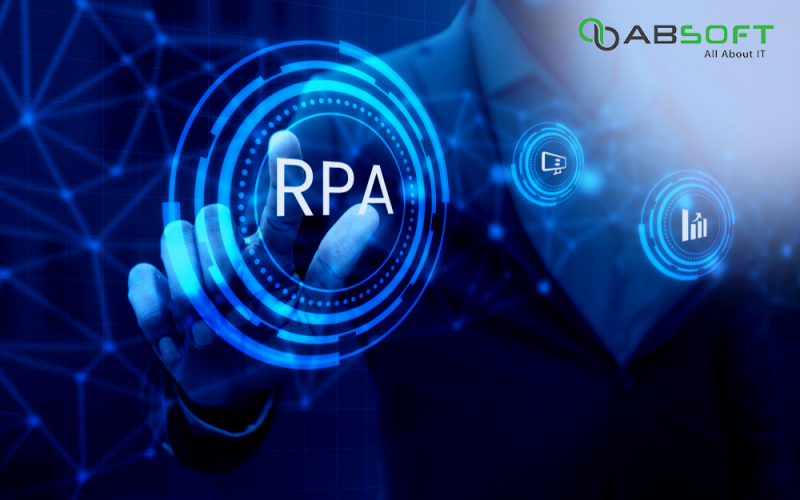Did you know that gains from implementing Robotic Process Implementation are significant with the ROI ranging between 2 times to 4 times of the cost of investment (Everest)? Moreover, according to McKinsey & Company, such automation techniques are reducing operational costs by almost 30-60%. However, for all its potential, businesses often find it difficult to successfully deploy RPA and therefore fail to reap these humongous benefits.
To understand, the RPA technology involves leveraging robots to automate repetitive tasks. These robots, commonly termed as bots, essentially mimic human actions. As per a Deloitte Report, RPA is outperforming expectations on aspects like:
- Accuracy
- Meeting timelines
- Flexibility
- Better Compliance
- Reducing Costs
Eventually, it is helping businesses move human resources to higher value and strategic initiatives boosting job satisfaction and driving business growth. It also fosters innovation.
Yet, without a clear strategy, businesses risk not reaping these benefits. Hence, it is crucial that businesses get RPA right. To do this, they must first set clear goals, create a solid foundation, and stay agile. When looking into RPA, it’s important to carefully consider these factors from the start.
Businesses can gain a competitive edge by integrating Zoho RPA with their existing systems. In this blog, we will discuss in detail the strategies required for successful Zoho RPA implementation.
Get ready to transform your business with automation!
Understanding Zoho Business Automation
Business automation leverages technology to handle routine tasks without needing human input. This boosts efficiency, cuts down on errors, and results in substantial cost savings. By automating these tasks, businesses can concentrate on strategic initiatives, which overall enhances productivity.
Zoho business automation offers a wide range of automation tools tailored to diverse business requirements. Its key features include:
- Workflow automation
- Data synchronization
- Real-time analytics
It helps in boosting operational efficiency and improves decision-making.
Automate to enhance productivity!
Understanding Zoho RPA
Zoho RPA builds bots for repetitive tasks that consume a lot of time. No code needs to be written for creating these bots. It enables users to build software bots that act on the UI of any application or system the same as a human will. It also ensures that processes are automatic, scalable, and reliable.
Key Features of Zoho RPA
Here are some of the key set of features of Zoho RPA that makes it worth:
- API: Build an integration where you can surf individual elements directly via the API.
- Windows Automation: Record and play your interactions with legacy applications, automate tasks.
- Web Applications and Website Interactions: Automating clicks, navigation, form filling, data extraction.
- Excel Automation: Deal with Excel logs automatically to get insights out of manual spreadsheet maintenance.
- Files & Folders Automation: Using Zoho RPA you can easily automate activities like copying a file, moving a file, creating a file, etc.
Empower your business with Zoho RPA!

Essential Strategies for Successful Zoho RPA Implementation
While the benefits of implementing Zoho RPA are immense, it is important that you ensure the right, expectations, foundations, and agility required for its successful implementation. Follow the following strategies to implement Zoho RPA and Zoho CRM implementation.
I. Preparing for RPA Implementation
Grasping the Basics of RPA
Begin by understanding what exactly robotic process automation involves. Identify areas where it can be leveraged. Understand its potential benefits and limitations. This knowledge will help you set realistic expectations for yourself and your stakeholders.
Evaluating The Readiness of Your Business
The next thing to assess is whether your business is ready to embrace RPA. Implementation of technologies requires change and often employees are resistant to such changes.
- Cultural and Change Management: Preparing your organisation for digital transformation is essential. Address common resistance points and develop strategies to foster a culture that is open to automation.
- Infrastructure Review: Assess your current IT infrastructure to determine the necessary upgrades or changes needed to support RPA software. This ensures seamless integration and functionality.
Crafting an RPA Strategy
- Setting Goals: Define clear, measurable objectives for your RPA implementation. What are your goals from automation? Setting specific goals will guide your implementation process.
- Choosing Processes: Identify and prioritise processes that are most suitable for automation. Consider factors like volume, predictability, and ROI potential to select the best candidates for automation.
Preparation today prevents headaches tomorrow!
II. Planning and Designing the Implementation
Mapping and Optimising Processes
Before automating any process, thoroughly map out each step and decision point. Look for opportunities to optimise these processes to maximise the efficiency of RPA. Streamlining processes before automation enhances overall effectiveness.
Selecting the Ideal RPA Tool
- Exploring Zoho RPA Features: Dive deep into the specific features and capabilities of Zoho RPA. Understand how it can meet your business’s requirements. Also, compare it with other tools and understand how it stands out from them.
- Comparing Tools: Compare Zoho RPA with other RPA tools available in the market. Highlight Zoho RPA’s unique advantages and why it should be your top choice.
Conducting a Pilot Test
Start with a pilot project. Design, implement, and evaluate a pilot test to serve as a proof of concept. This allows you to refine your broader RPA strategy and address any potential issues before a full-scale implementation.
Optimise first, automate next!

III. Executing the Implementation
Creating a Detailed Roadmap
Develop a step-by-step guide for implementing Zoho RPA. This roadmap should include software installation, bot configuration, and full deployment. A detailed plan ensures a structured and efficient implementation process.
Integrating Systems Seamlessly
Discuss how to effectively integrate Zoho RPA with your existing systems and databases. Cover technical considerations. Also carefully understand the best practices for seamless integration.
Managing and Troubleshooting
- Staff Training: Develop training programs for your staff to manage RPA tools effectively. Empower your team with the requisite knowledge and skills.
- Troubleshooting and Support: Provide common troubleshooting tips and how to utilise Zoho RPA support effectively. Ensure your team knows where to turn for help when needed.
Plan meticulously, execute flawlessly!
IV. Monitoring and Expanding RPA
Tracking Performance
Set up KPIs to monitor the performance of RPA bots. Utilise analytics tools provided by Zoho RPA to track efficiency and accuracy. Regular monitoring helps identify areas for improvement.
Scaling Up RPA Initiatives
Once initial goals are met, consider expanding RPA solutions to additional processes and departments. Develop strategies for managing a larger RPA ecosystem, ensuring continued efficiency and productivity.
Track then scale!
V. Sustaining and Enhancing RPA
Continuous Improvement
RPA once implemented is not done. You need to continuously assess its performance and understand you can improve it to leverage it better. Regularly review and optimise your automated processes.
Exploring Advanced Applications
Explore advanced uses of Zoho RPA, such as incorporating AI and ML for decision-making processes. This further enhances your automation capabilities and drives greater value for your organisation.
By following these strategies, you can successfully implement Zoho RPA and Zoho CRM in your organisation, unlocking significant benefits and driving digital transformation.
Conclusion
Implementing robotics requires effort and investment, but the rewards can be substantial. Start by setting clear goals and establishing a strong foundation.
Plan for flexibility to adapt quickly. This approach will help you scale your digital workforce efficiently. Not only will you achieve a more cost-effective, faster, and higher-quality workforce for routine tasks, but you will also cultivate a mindset that propels your digital journey forward.
Still not sure? Schedule a free demo with a trusted Zoho Integration Partner. Discover how Zoho CRM Services and Zoho RPA can give your business a competitive advantage.












